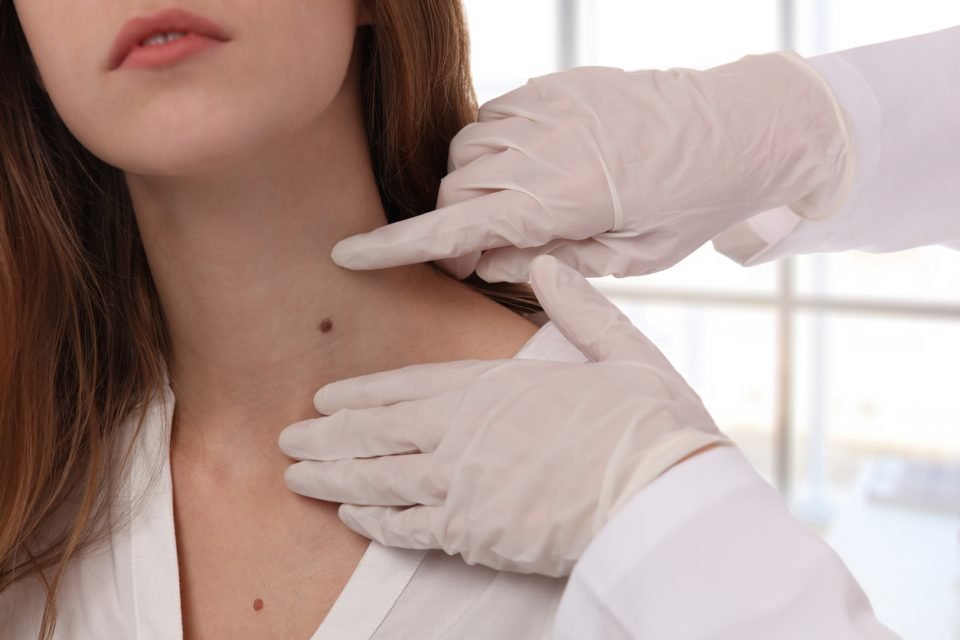
<!DOCTYPE html PUBLIC "-//W3C//DTD HTML 4.0 Transitional//EN" "http://www.w3.org/TR/REC-html40/loose.dtd“>
By Camden Marcucci | Contributor
**Dermatologists Stress the Importance of Skin Self-Exams**
Board-certified dermatologists emphasize that regular skin self-examinations are essential for maintaining health.
The American Academy of Dermatology (AAD) underscores the significance of these self-exams during National Healthy Skin Month in November. Such examinations facilitate the early detection of serious conditions when they are most manageable.
Research indicates that nearly 25% of Americans suffer from skin diseases, with skin cancer being the most prevalent cancer in the United States. Approximately 9,500 individuals are diagnosed with skin cancer every day.
“Consistent self-skin examinations are vital for the early identification of skin cancers and other skin disorders,” stated Dr. Ken Tomecki, FAAD, president of the AAD. “We urge everyone to perform skin self-exams regularly to notice any changes promptly.”
Millions of individuals conduct self-skin exams, often followed by consultations with dermatologists. The following three stories reflect the experiences of countless others:
– John Ahearn from Phoenix, AZ, understood the necessity of regular skin checks due to his fair complexion. After noticing dark bruises on his legs, his dermatologist, Dr. Lindsay Ackerman, FAAD, suspected a severe blood condition. Together with a hematology-oncology specialist, they diagnosed John with leukemia. He underwent a bone marrow transplant and is now in remission.
– Richard Danzer from West Palm Beach, FL, discovered a large, painful cyst on his back during a self-exam. His dermatologist, Dr. Brittany Smirnov, FAAD, conducted an assessment that ultimately led to a crucial diagnosis of lung cancer and life-saving treatment.
– Yvonne Basil from Plano, TX, observed changes to a mole on her toe and promptly scheduled a visit with her dermatologist, Dr. Seemal Desai, FAAD. An in-office biopsy confirmed melanoma, the deadliest type of skin cancer, but she is now cancer-free.
**How to Conduct a Skin Self-Exam:**
– Examine your entire body in front of a full-length mirror.
– Inspect your underarms, forearms, and palms.
– Check your legs, as well as between your toes and the soles of your feet.
– Use a hand mirror to inspect your neck and scalp.
– Utilize a hand mirror to check your back and buttocks.
**What to Watch For:**
– **A is for Asymmetry:** One half of the mole is different from the other half.
– **B is for Border:** The mole has an uneven, scalloped, or poorly defined border.
– **C is for Color:** The mole presents various colors in different areas.
– **D is for Diameter:** Melanomas typically exceed 6 millimeters, roughly the size of a pencil eraser. At diagnosis, they may be smaller.
– **E is for Evolving:** The mole appears different from others or is changing in size, shape, or color.
If you notice a mole that stands out from the others, changes, itches, or bleeds, make an appointment with a board-certified dermatologist.
For additional information, visit: https://www.aad.org/public/public-health/awareness-campaigns/national-healthy-skin-month
**About SkinSerious**
SkinSerious is an initiative from the American Academy of Dermatology that underscores the vital role of dermatologists as partners in the healthcare system, offering expert care for serious conditions. For more details, visit SkinSerious.org.
**About the AAD**
Situated in Rosemont, Illinois, the American Academy of Dermatology, established in 1938, is the largest, most influential, and representative organization for dermatology. With over 20,000 physician members globally, the AAD is dedicated to: enhancing the diagnosis and treatment of conditions affecting the skin, hair, and nails; upholding high standards in clinical practice, education, and research in dermatology; and promoting patient care to ensure healthier skin, hair, and nails throughout life. For further inquiries, contact the AAD at 1-888-462-DERM (3376) or visit aad.org.
*Editor’s Note: This content is not intended as a substitute for professional medical advice, diagnosis, or treatment, and does not serve as medical or other professional advice.*






